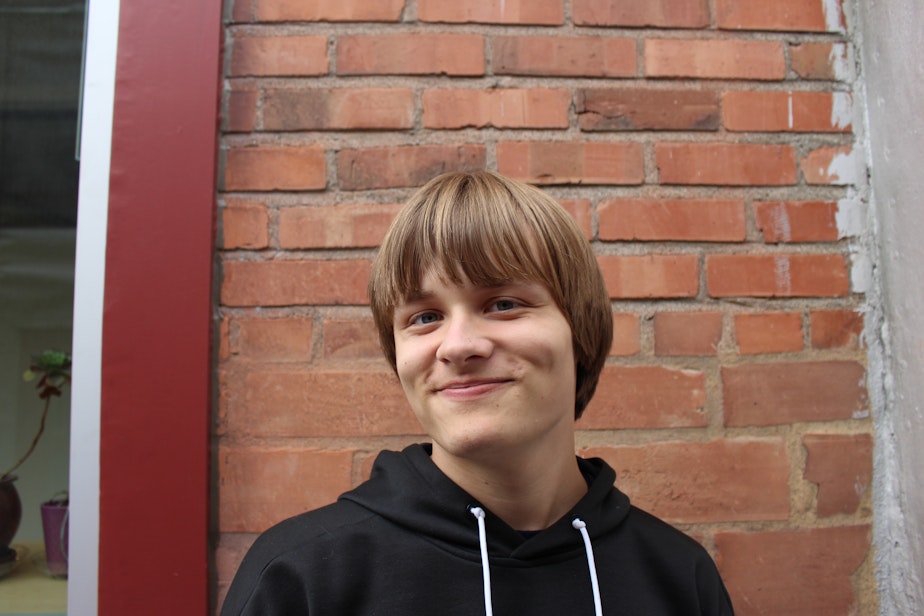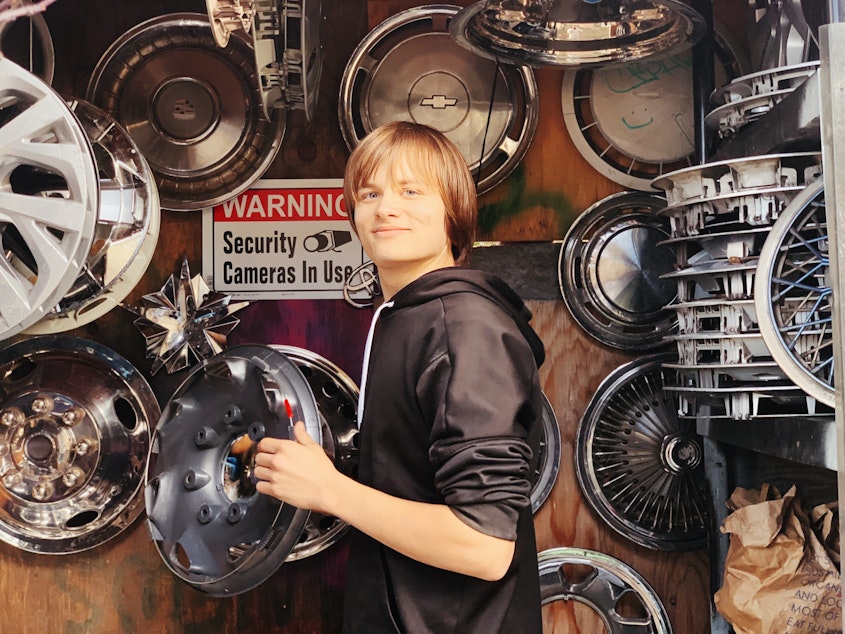Advice from a neurodiverse teen on navigating the school system

I identify as neurodiverse, which means that I need accommodations to make the traditional classroom work for me. Over the years, my family and learning team have helped me advocate for the support I need.
Identifying as neurodiverse isn't always an inconvenience. It makes me who I am. I am a very creative person, and I often think about things in a different way.
But it does affect my sensory processing and focus. My brain goes to distractions, first.
Sponsored
Neurodiversity includes conditions from autism to ADHD to dyslexia. Basically, it refers to variations in how our brains work.
Julie Osterling is an experienced psychologist and long-time friend who has helped me figure out how to work within the school system.
"When I'm working with teens and young adults with neurodiversity," Julie told me, "one of the most important things I do is help them to understand that they have to spend their entire day in the neurotypical world.”
"All day, they are getting the message that there is something wrong with them," she said.
This doesn’t come from intentional discrimination, Julie said, but rather from a lack of understanding about the particular student.
Sponsored
Back when we were still discovering my differences, I was too young to have much of a voice for myself.
In elementary school, staff didn't know how to handle my one-of-a-kind approach to work I didn't know how to handle.
I would get upset, and the teachers used to put me in a closet with the light off, or even make me clean the walls in the lunchroom in front of the other students. Naturally, this made me angry and embarrassed.
I'm twice exceptional, meaning that I qualify for advanced learning, and I'm neurodiverse. "A lot of people think you can be one or the other," Julie said. "They don't understand both."
Learning disabilities or differences often comes with a high level of creativity and curiosity as well. I even have a weird YouTube channel — dedicated to my hubcap collection.
Sponsored

Academics only keep my attention if it's something that interests me. Usually, I like science, English or hands-on activities.
Julie said she figured out that I didn’t really care about tests, so I had a hard time paying attention to them. Once she figured that out, she said, “I re-administered the test by adding in a whole bunch of extra incentive for you."
I would get a small snack or a couple of minutes on YouTube after every few questions I answered.
Sponsored
"That's when you performed in the twice exceptional category," she said.
She helped me work in a way that reflected my ability, rather than my disability.
Over the years, in various schools, I’ve seen a slow improvement.
My parents' endless advocacy, the support of some folks in the special education program, and help from advocates like Julie have made it possible to overcome many of the assumptions that people have about my neurodiversity.
I'm now a junior at West Seattle High School. For the past two years, I've been working with Dede Jolley, a special education teacher at my school.
Sponsored
"Most of the understanding gaps," Dede said, "tend to come from general education teachers' misunderstanding of what accommodations are.”
Part of her job is to help teachers understand that accommodations help create a classroom that supports a diversity of learning styles.
For me, accommodations often mean extra time to complete an assignment or another adjustment that makes it easier for my brain to express what I know.
Dede has advice for students who have different ways of gathering info. She said that asking for support directly is the way to get what you need.
"Utilize the people that are there to support you," Dede said. "Ask for ways to talk to your teachers so that the teachers understand. Like, ‘I'm not trying to get under the work, but I'm trying to figure out how I can get this work done in a way that best fits me.’"
And finally, make sure to always remember your value to the community — at school or anywhere else you go. Keep working towards your potential, even when that gets difficult.
"You're awesome,” Dede said. “We just have to help you figure out how to work your neurology to get it to do what you want it to do."
This story was created in KUOW's RadioActive Intro to Journalism Workshop for 15- to 18-year-olds, with production support from Andrew Stuckey. Edited by Carol Smith.
Find RadioActive on Facebook, Twitter and Instagram, and on the RadioActive podcast.
Support for KUOW's RadioActive comes from the Bill & Melinda Gates Foundation Discovery Center.



